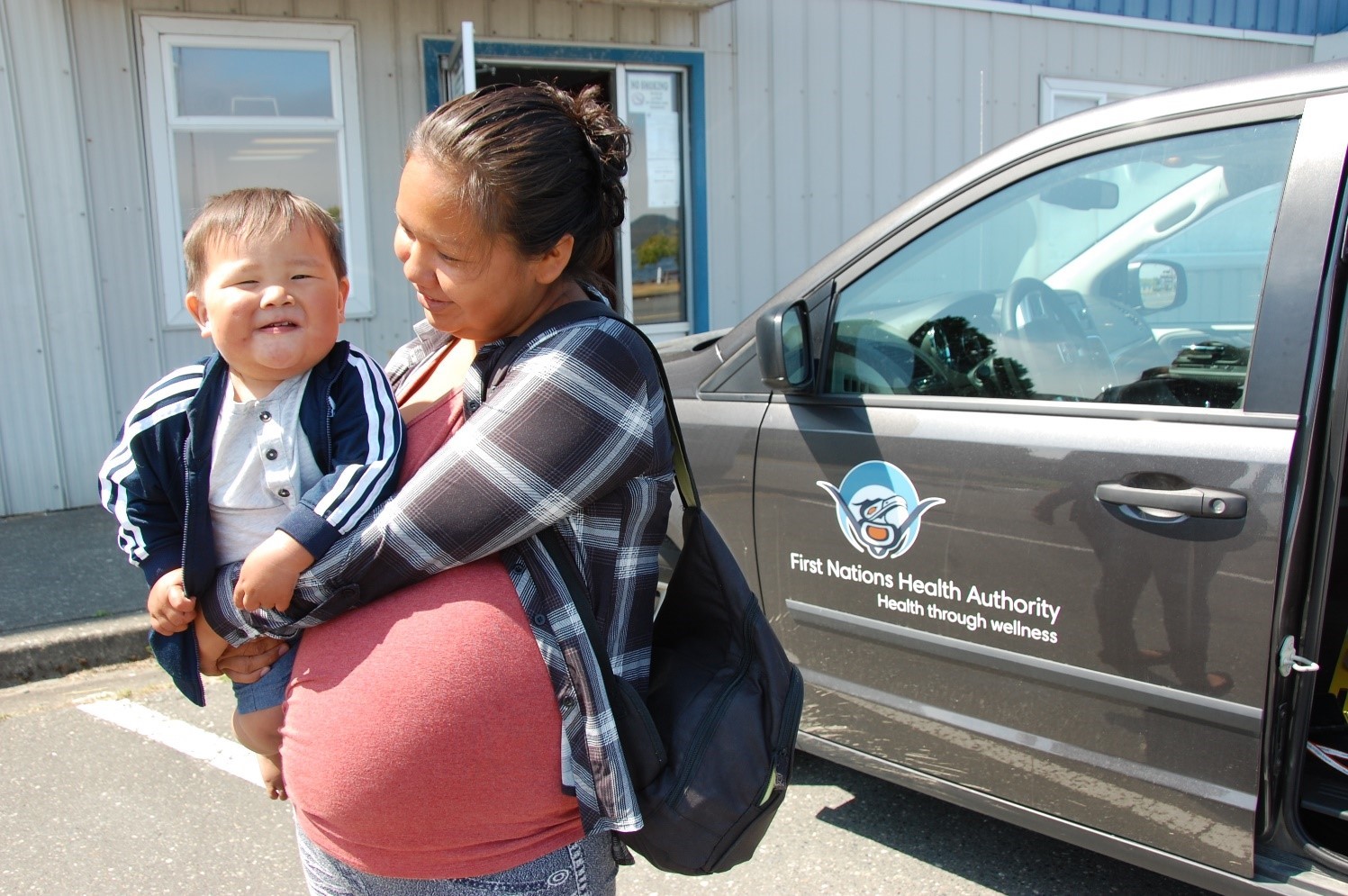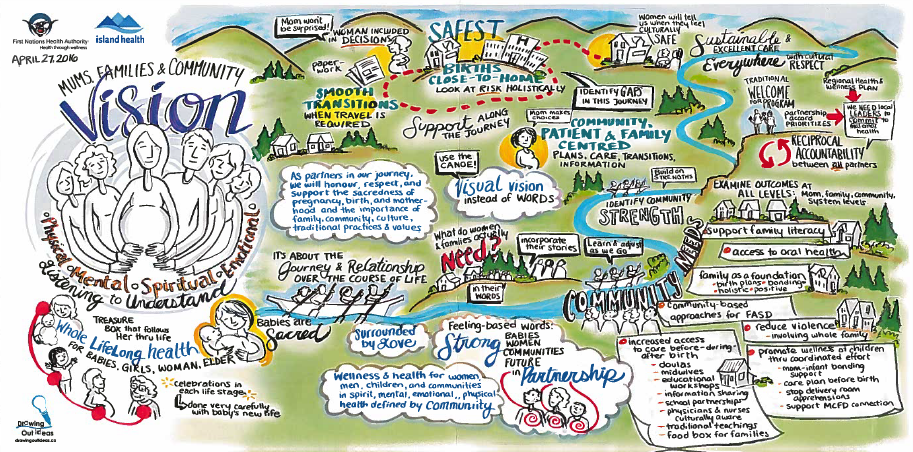Inside the cozy Port Hardy Building Blocks meeting room, the air was filled with delicious smells and the voices of young Kwakwaka’wakw families and First Nations Health Authority (FNHA) staff. The FNHA Evaluation Team was presenting key findings from an implementation evaluation of the Kwakwaka’wakw Primary, Maternal, Child and Family Health Collaborative Project to the community that shared the wisdom and knowledge that informed the work.

Families dropped in with their toddlers and infants for a play, a visit with the Nurse Practitioner, or a plate of beef and broccoli stir-fry. The setting mirrored the findings of the evaluation itself; warm, collaborative, family-centered and culturally safe wrap-around services that evolve and adapt over time to meet the needs of pregnant women and their families.
The Kwakwaka’wakw Primary, Maternal, Child and Family Health Collaborative Project is one of 27 Joint Project Board projects that were collaboratively developed in 2014 and 2015 between local First Nations communities, the FNHA regional teams and Regional Health Authority partners. The aim is to increase access to primary care and regulated health service professionals, increase collaboration with partners, and support sustainable health care delivery. The Kwakwaka’wakw project was created to address the lack of maternal care and birthing services for the Kwakwaka’wakw family on northern Vancouver Island.

The evaluation took place prior to the COVID-19 pandemic and examined project planning and implementation, service delivery and the early achievement of intended results. Learnings were informed by conversations with staff, women and their families, surveys of project partners, and reviews of project documents and records.
The evaluation learnings are as follows:
Initiating the project
- There were challenges with the complexity of navigating and transforming models of care across multiple organizations, filling the team lead position and introducing midwifery services.
- The project successfully supported women and their families in a growing number of First Nations communities and urban locations on northern Vancouver Island.
- There was a significant amount of unused project funds during early years of implementation, due primarily to staffing challenges.
Project services
- The project stayed true to its guiding principles of being women- and family-centred, culturally safe, team-based, and as close to home as possible.
- Families would like to see more supports and resources that support traditional cultural practices for pregnancy, birth and parenting and more resources geared towards fathers.
- Some challenges with the medical transportation benefit were identified, such as a lack of flexibility when travel plans changed.
Successes achieved
- Two contracted midwives supported local hospital deliveries and increased the availability, accommodation and accessibility of prenatal services.
- Women feel the services are supporting their needs and wishes and helping to reduce stress.
The evaluation made the following recommendations:
- The FNHA should examine the systematic challenges and barriers within JPB projects, including those challenges and barriers that have resulted in high levels of unused project funds.
- The FNHA should address identified First Nations Health Benefits medical transportation benefit challenges.
- The Kwakwaka’wakw Project and its partners should continue to navigate and transform models of care across multiple organizations.
- The Kwakwaka’wakw Project and its partners should strengthen information sharing among clinicians and support the integration of anti-racism, cultural safety and humility, and traditional and cultural practices, in the health system.
- The Kwakwaka’wakw Project should implement a performance monitoring process.
The full report is now available on the
FNHA “Audits and Evaluation" page, including Management response and actions and some updates on progress since the evaluation was conducted in 2018.
The title of the report, “Supporting Me on the Path That I'm On", was chosen by families from amongst the quotes shared. The subtitle,
“He na qwa", which means “Keep Going" in Kwak'wala was gifted by late Elder Mabel James.
As the tables were cleared away, and the leftovers packed up following the presentation, these messages of support and onwards progress were obviously as relevant and central to the work today as when the evaluation was undertaken. The FNHA Evaluation Team wishes to express appreciation and gratitude to the many contributors, partners and families that shared their perspectives and wisdom through this work.

